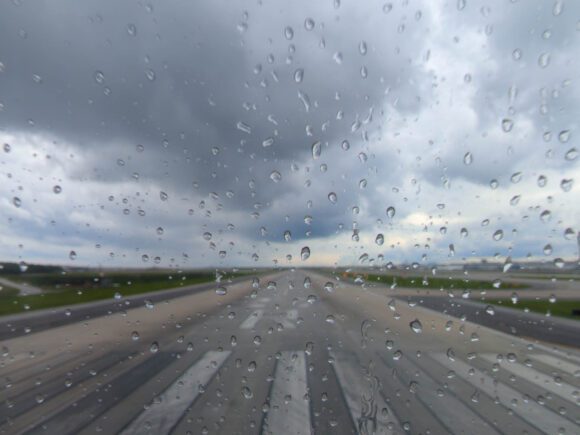
afraa
The future of African carriers looks bleak no thanks to the COVID-19 pandemic which is exacerbated by the Omicron variant. This has led to many European, North American nations imposing a travel ban on many parts of Southern African countries of South Africa, Zimbabwe, Eswatini, Lesotho, Botswana, Namibia, Mozambique, Malawi including Nigeria among many others. The umbrella body for African airlines’, the African Airlines Association (AFRAA) has forecast a full-year loss in revenue of $8.5bn for airlines all over the continent.
It said in a statement on Tuesday that African airlines cumulatively lost $10.21bn in revenues due to the impact of the pandemic, representing 58.8 percent of 2019 revenues.
Survival at risk
The report titled, ‘African airlines’ performance updates by AFRAA – November 2021’ stated that Africa’s poor performance could affect the survival of the aviation industry across the continent. It states:
“Across the African continent in general, passenger traffic volumes continued to be low due to the inconsistencies in the messaging regarding border closures, health protocols and continued surge in COVID-19 infections in some countries, and recently the concern about omicron identified as a potentially more transmissible coronavirus variant. The result is significantly low airlines revenues. Full-year revenue loss for 2021 is forecast at $8.5b, that is, 49% of the 2019 revenues. In 2020, African airlines cumulatively lost $10.21b in revenues due to the impact of the pandemic, representing 58.8% of 2019 revenues. This poor performance is a direct threat to the survival of the African aviation industry.”
While the report tried to ascertain whether the Omicron variant was transmissible, it said the number of cases had reached 257 million globally and 8.6 million in Africa. This variant, it explained, was responsible for the drop in passenger demand for travel.
“From January to November 2021, air passenger traffic reached 41.6% compared to the same period in 2019. Similarly, capacity reached 58%. The low evolution of ASK is explained by the ongoing travel restrictions and the low willingness of travelers. Domestic market maintained the biggest share for capacity but reduced traffic in August 2021, with demand for passenger travel outperforming intra-Africa and intercontinental at 39% compared to 29.3% for intra-Africa and 31.6% for intercontinental. Both intra-Africa and intercontinental displayed an increase in traffic. As regards passenger seats offered, domestic, intra-Africa and intercontinental account for 44.7%, 22.4%, and 32.9% respectively,” the report states.
Dashed hope
The trade association of airlines observed that African airlines’ restart of operations on international routes continued with the positive trend into November as only four of the top 15 African airlines exceeded the number of their international routes in the pre-COVID period. It, however, noted that air traffic fell from 81.3 percent in October to 80.8 percent in November 2021 due to some airlines that closed a few international routes, among which were Air Arabia Maroc and EgyptAir.
Nonetheless, the report acknowledged all regulatory moves to stem the movement of the Omicron variant in various countries including the United Kingdom ban on flights from Nigeria over the COVID-19 virus.
Nigeria bears fang
Meanwhile, the Nigerian Civil Aviation Authority (NCAA), in a memo to all airlines operating international flights in and out of Nigeria, threatened them with a $3,500 fine per passenger as well as a ban from coming into Nigeria. The memo, which was forwarded to your correspondent this afternoon, charged airlines to only board passengers with evidence of a negative COVID-19 PCR test no less than 48 hours of boarding.
Governments’ regulations
The government of Morocco tightened entry restrictions to its territory and suspended flights to some European countries including the UK, Germany, and the Netherlands due to the rise in Covid cases. The move comes in response to the growing number of Covid cases across Europe.
Effective December 1, 2021, only Covid certificates obtained on the Trusted Travel platform or verified on the Global Haven systems will be valid for entry or exit into Namibia at certain points of Entry. Namibia aligned itself with the African Union, which has implemented the Trusted Travel System, an online platform for travelers to register their personal and COVID-test-related details prior to travel. EU: Recommendation on the lifting of European travel restrictions for third-countries nationals – Updated country list – Two African countries on the list: Namibia and Rwanda, as from 9 November.
Red lists
The Government of Canada published the list of countries with entry prohibitions, which includes Botswana, Egypt, Eswatini, Lesotho, Malawi, Mozambique, Namibia, Nigeria, South Africa, and Zimbabwe. Foreign nationals who have been in any of these countries within the previous 14 days will not be permitted entry into Canada.
This is as of December 1. US joins EU in restricting travel from South Africa, Botswana, Zimbabwe, Namibia, Lesotho, Eswatini, Mozambique, and Malawi. The ban came into effect on November 29. Effective December 6, the United Kingdom has banned flights from Nigeria over the Omicron variant of the Covid virus.
Views: 2



